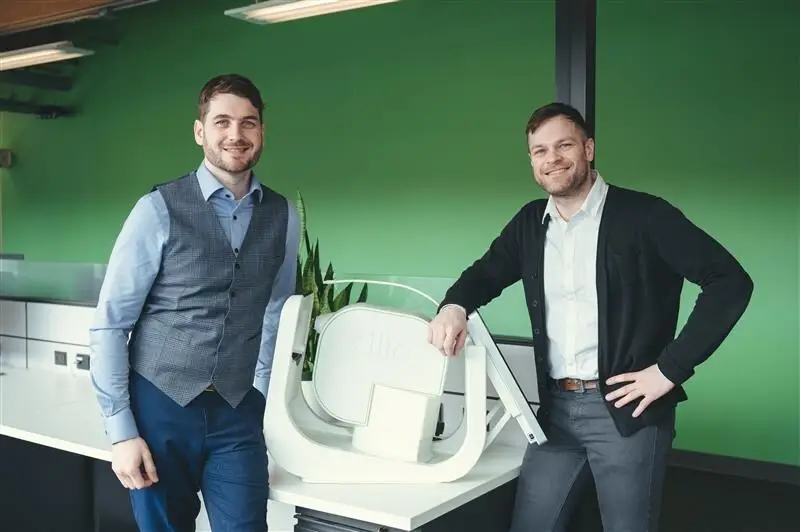Veracyte, Inc. (Nasdaq: VCYT) announced that new data presented at ENDO 2023, the annual meeting of The Endocrine Society, suggest the company’s Afirma molecular testing and whole-transcriptome capabilities can provide novel insights that may advance the scientific understanding of thyroid nodule biology. In addition, findings from an analytical validity study presented at the meeting show that the Afirma TERT promoter mutation test performs with high analytical sensitivity and specificity.
“These data demonstrate that our Afirma molecular testing capabilities and genomic-profile database are valuable tools that can help researchers better understand the genomic underpinnings of thyroid nodules and cancer,” said Joshua Klopper, M.D., Veracyte’s medical director of Endocrinology. “Additionally, our findings reinforce the performance of our TERT promoter mutation test, which we recently began offering with our Afirma Genomic Sequencing Classifier to help advance patient care.”
In an oral presentation at the conference, Allan Golding, M.D., an endocrinologist at Memorial Healthcare System, shared data from a study designed to evaluate whether novel, predictive, genomic research signatures derived from Afirma’s whole-transcriptome gene-expression profiling could predict a low risk of tumor invasion and lymph node metastases among patients with suspicious thyroid nodules. Golding and colleagues developed and tested hundreds of genomic risk signatures, and then evaluated the top performing signatures using histopathology-based results as a reference. They assessed the signatures among known malignancies and indeterminate nodules (Bethesda III-IV) classified as suspicious for cancer by the Afirma Genomic Sequencing Classifier (GSC). Results show that, among the 697 patients evaluated, the top-performing genomic risk signatures classified 40-50% of the nodules as low risk for lymph node invasion or metastases.
“Our study demonstrates that the Afirma testing platform and database can be used as a research tool to develop novel genomic research signatures that may help advance the understanding of thyroid cancer behavior,” said Dr. Golding. “In this case, being able to rule out the potential for tumor invasion and metastasis in a cancerous thyroid nodule could help inform more personalized surgical decision-making, potentially reducing excess surgery and other overtreatment.”
In a second study presented at ENDO 2023, researchers led by Sina Jasmin, M.D., M.P.H., of Washington University in St. Louis interrogated the Afirma thyroid nodule database to assess cytologic and molecular differences between thyroid nodules in the isthmus (the part of the thyroid gland that connects the left and right lobe) and those in either thyroid lobe. Nodules that arise from the isthmus are more likely to be malignant and aggressive compared to those from either thyroid lobe, and researchers sought to further elucidate the molecular profiles that contribute to this aggressiveness.
Findings from the study show that, among thyroid samples sent for Afirma GSC testing, the proportion of nodules with cytology that was either suspicious for malignancy or malignant (Bethesda V-VI) from the isthmus was nearly double that of nodules from the lobes (8.2% vs. 4.3%). Using the Afirma-based RNA whole-transcriptome database to evaluate molecular alterations in indeterminate (Bethesda III-IV) thyroid nodules classified as suspicious by Afirma GSC as well as Bethesda V-VI thyroid nodules, the researchers identified distinct differences in the frequency of various mutations and variants that indicate cancer aggressiveness in isthmus vs. lobar nodules. Isthmus nodules, as an example, had twice the frequency of BRAFV600E mutations compared to lobar nodules (21% vs. 10%), an increased frequency of ALK/NTRK/RET fusions (4.6% vs. 2.5%) and a lower frequency of NRAS and HRAS variants (7.7% vs. 13% and 4.5% vs. 8.2%, respectively).
In the final Afirma-related presentation at ENDO 2023, researchers shared findings that confirm the analytical performance of the Afirma TERT promoter mutation test, which was recently introduced as a complement to the Afirma GSC. TERT promoter mutations are relatively enriched in larger, aggressive thyroid cancers, and knowing a thyroid nodule patient’s TERT promoter mutation status may help inform personalized treatment decisions for patients with diagnosed or suspected cancer.
After independently evaluating the test’s analytical sensitivity, specificity and reproducibility, researchers concluded that the Afirma TERT promoter mutation test is analytically robust and reproducible, supporting its routine clinical use among thyroid nodules that are Afirma GSC suspicious or have Bethesda V-VI cytology. Specifically, they found that the test is tolerant to variation in amount of DNA input and can detect positive TERT promoter variants even when there are low levels of these variants in a given sample (>95% sensitivity).
“These new study findings underscore the performance of Veracyte’s TERT promoter mutation test, which was recently added to our Afirma offering to help physicians further personalize diagnosis and treatment for their patients with thyroid nodules,” said Dr. Klopper. “Moreover, this analytical study reinforces the high clinical-evidence standards to which we hold all of our tests.”
Veracyte’s flagship Afirma GSC was developed with RNA whole-transcriptome sequencing and machine learning technology and helps physicians identify patients with benign thyroid nodules among those whose fine needle aspiration (FNA) biopsy results are indeterminate by cytopathology so that they can potentially avoid unnecessary thyroid surgery. The Afirma GSC also includes the Xpression Atlas, the largest thyroid gene and fusion variant panel available, to help inform treatment decisions for patients whose genomic test or cytopathology results are suspicious for cancer. With its recently expanded Afirma offering, Veracytealso enables physicians to order DNA testing of the TERT promoter gene, which is performed on the same FNA sample, to help further guide treatment decision-making.

